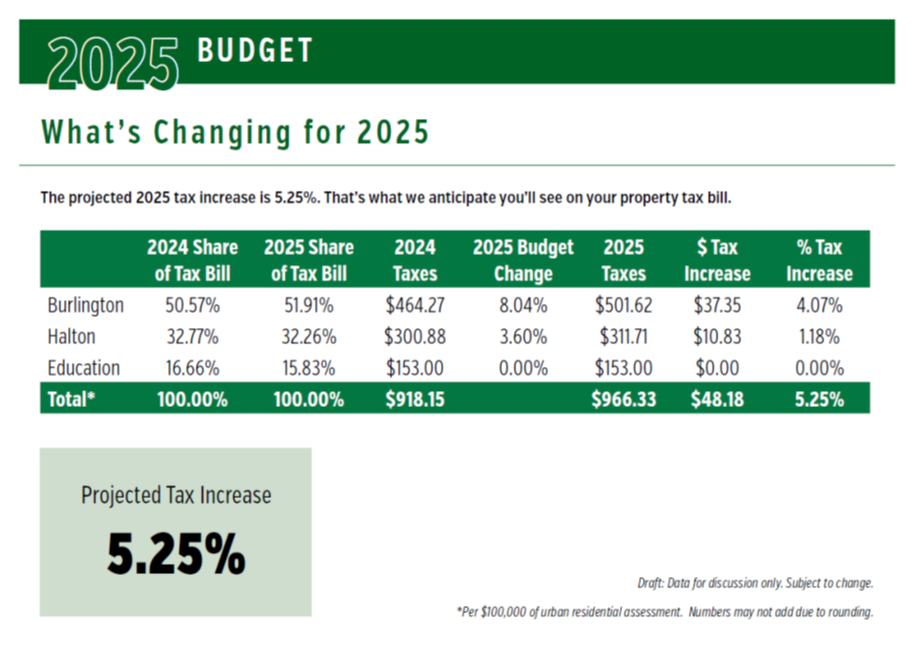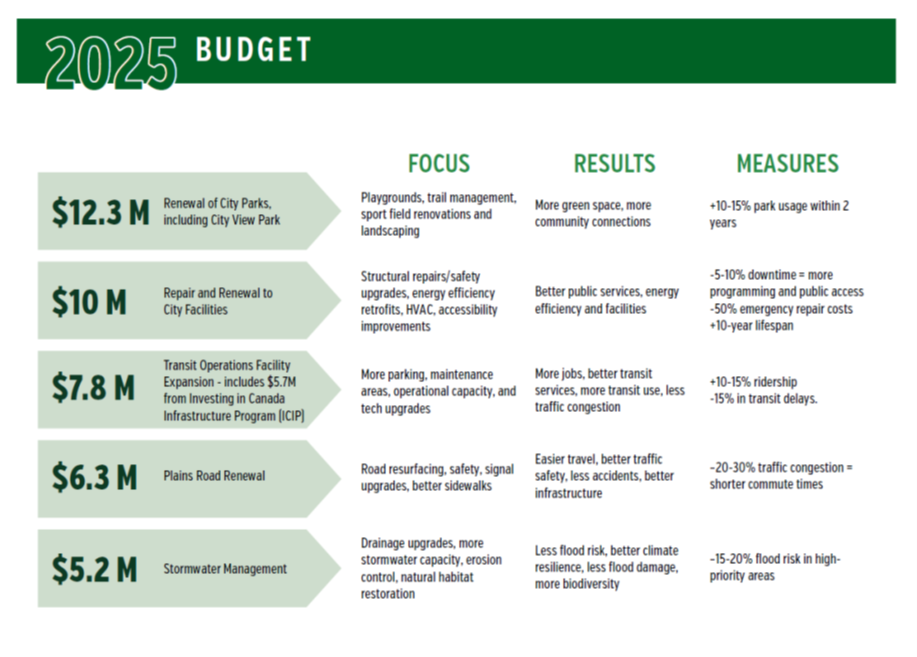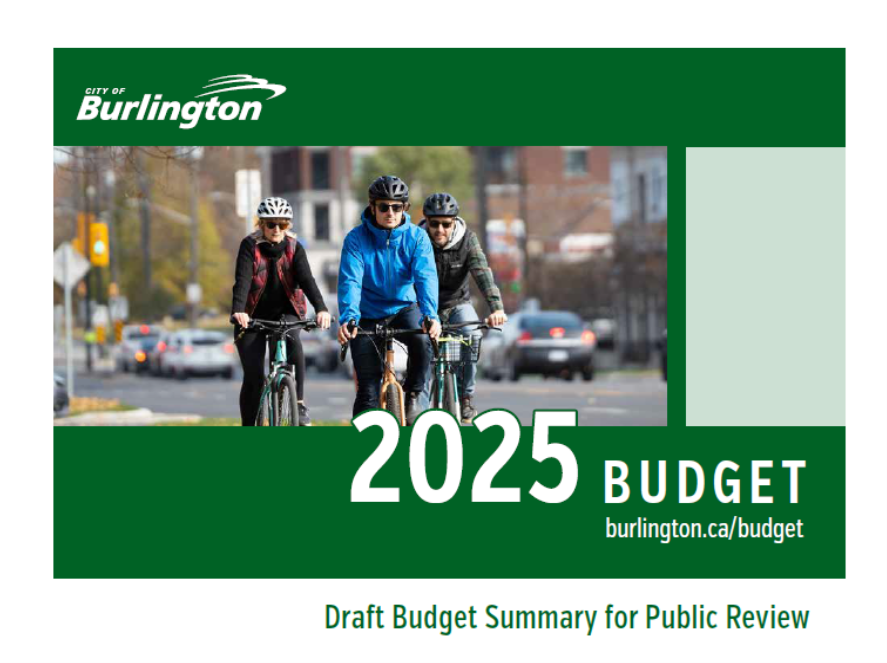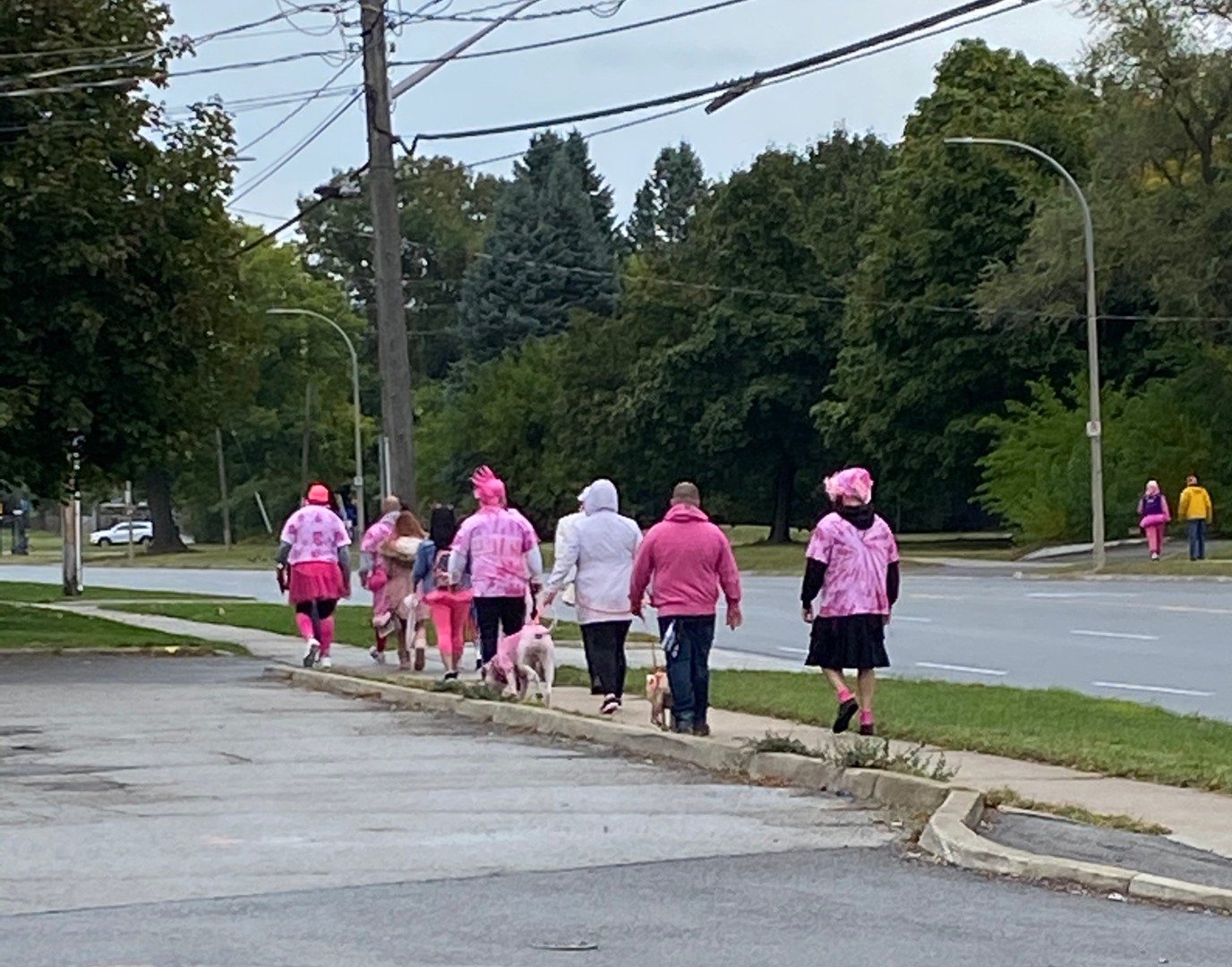By Maisha Hasan, Local Journalism Initiative Reporter
In the clamour of the various issues that come up each year in Burlington, the city tries (and sometimes fails) to meet every citizen’s concern. To try to address some of these resident concerns, the city has been hosting pre-budget consultation sessions to get an idea of Burlington residents’ thoughts on the proposed 2025 budget (a summary of the proposed budget is available online here). The summary provides information on capital projects, key investments, and reserve funds. City council will meet on Nov. 18 and 21 to make amendments to the budget; the final 2025 budget will be finalized on November 25 at a special council meeting.
At the Oct. 3 pre-budget consultation, Mayor Marianne Meed Ward and Ward 5 Councillor Paul Sharman were on hand, at which the mayor presented a slide deck on the pre-budget summary and took questions afterwards. Councillor Sharman answered some of the audience’s technical questions.
To begin, the four main principles the city strives to focus on this year are affordability, livability, sustainability, and transparency. The pre-budget is proposing a budget increase for the city of 8.04%— some of the main expenditures are as follows: $87 million to community services; $83 million towards corporate revenues and expenditures; $49.7 million towards public works; $31.8 million towards enabling services; $3.8 million goes towards developmental and growth management.
Burlington’s population is expected to grow by over 40% by 2051. City budgets should account for the increasing needs of residents in order to guarantee a sustainable financial future. For the long-term benefit of the community, this entails making additional infrastructure and service investments.
The city plans to invest an additional $4.88 million in 2025 to renovate city infrastructure in various neighbourhoods throughout the city.
As to what is changing for residents, there is an anticipated tax increase of 5.25%. When asked for the target tax increase, the city responded to say that they are aiming to “balance the goals we have today for the needs we have for the future.” When asked for further comment for this article, Sharman says, “We don’t have a target tax rate or budget increase, what we’re trying to do is maintain the quality of services and operations of the city for the good of the community.”

When asked why the budget has been delayed, the city answered that the unexpected flooding in the summer has taken extra time to make sure they are “doing due diligence… making sure everything is accurate.” As per the pre-budget summary online, the budget is not delayed, it is proceeding according to schedule; with ongoing work, including these pre-budget consultations, the finalized budget may show some changes from the current summary.
On the topic of flooding, the city has sent cheques to families affected by the flood. However, the need for the state of good repair (a technical term meaning that everything is working as it should) is currently being assessed, potentially leading to upcoming changes in the budget.
When asked how the budget can go ahead with the flood funding without key information, the city stated they are working with stormwater management to find out about all the damage caused by the summer flooding. The region, who is in charge of sanitary sewage management, is undergoing the same process on their end, and so their budget may also see upcoming changes.
An online comment noted that Brampton and Toronto had gotten funding from the provincial government for the flooding whereas Burlington notably has not. The city has contacted the province and they are currently in assessment. The province will decide if the cost of damage and repairs meets the threshold for funding.
General questions included asking for insight into how the city goes through the process for tax savings. The city works with all the commissioners (heads of departments and their staff) within different divisions, reviewing each individual budget to see what savings they can find.
There’s a final consultation for the community to give their input on the pre-budget takes place on Tuesday, October 8 from 7 p.m. to 8:30 p.m. at Brant Hills Community Centre in Community Room 1. There is also a survey open till October 9 for residents to give their input and thoughts on the pre-budget.
The budget affects everyone and it is imperative to get involved and raise any concerns or questions you may have. For more information, visit the City of Burlington website or click here to take the survey.





